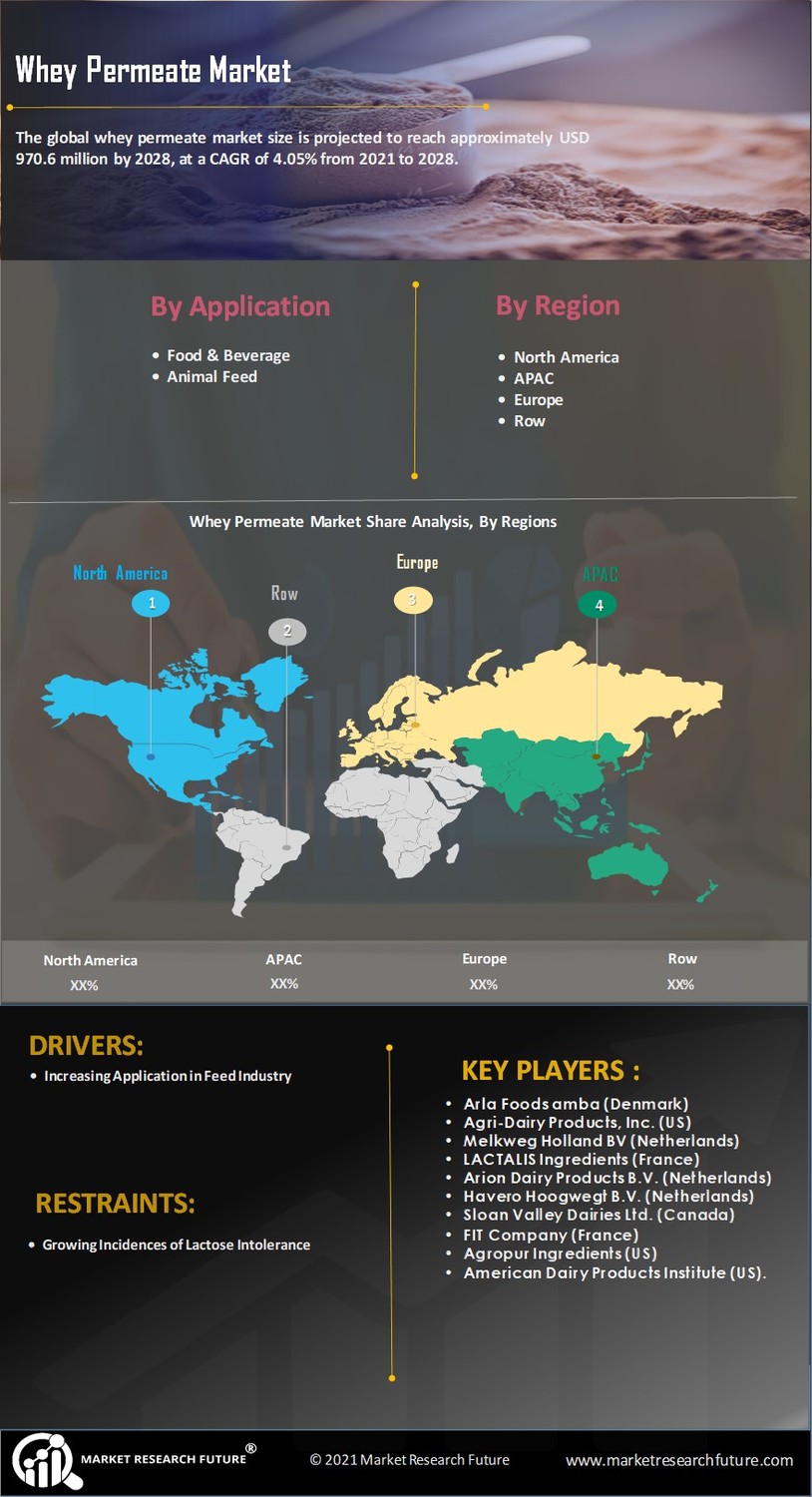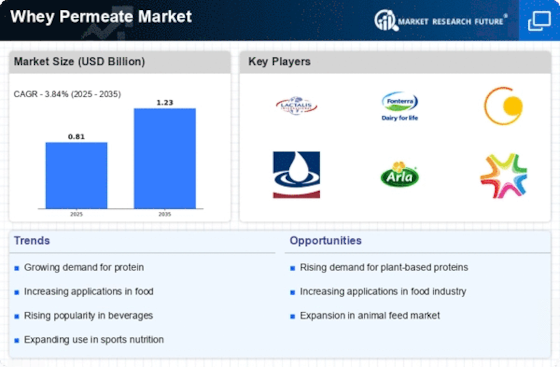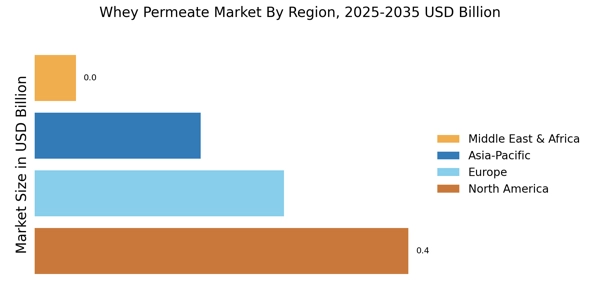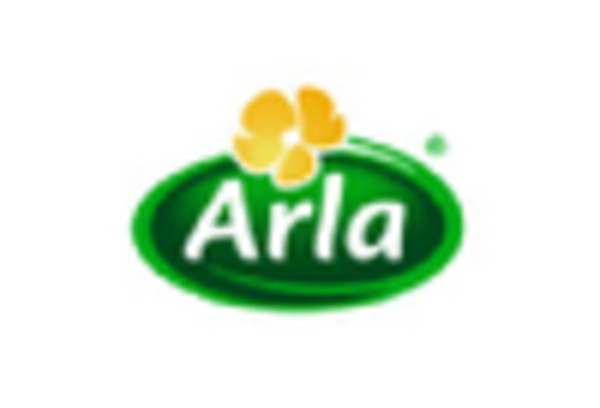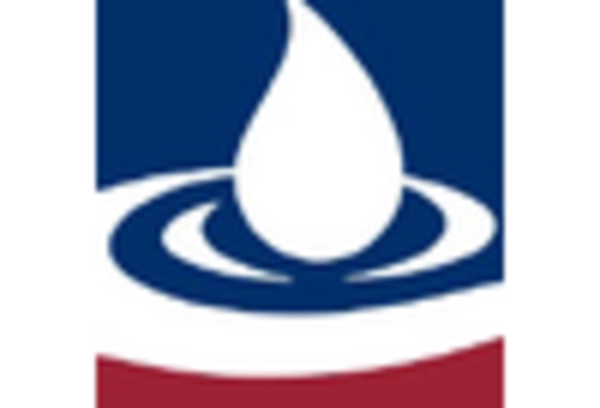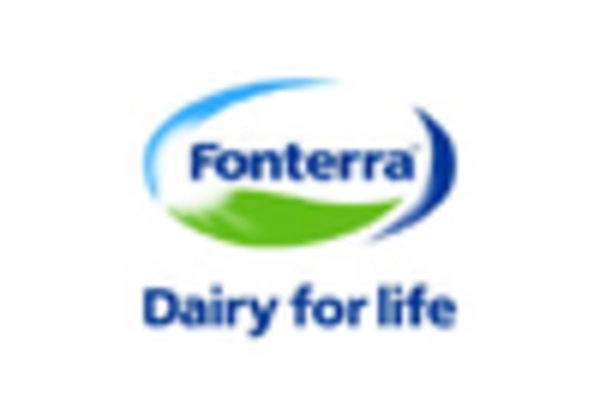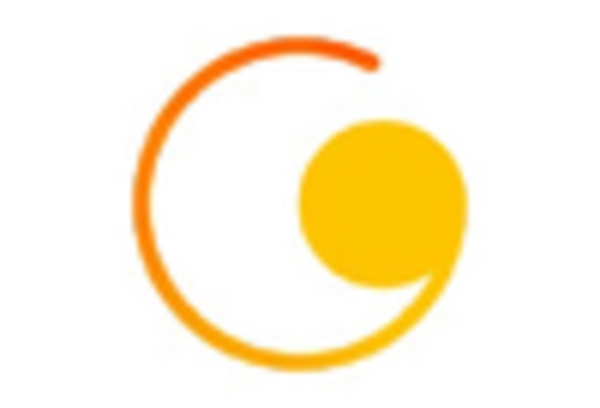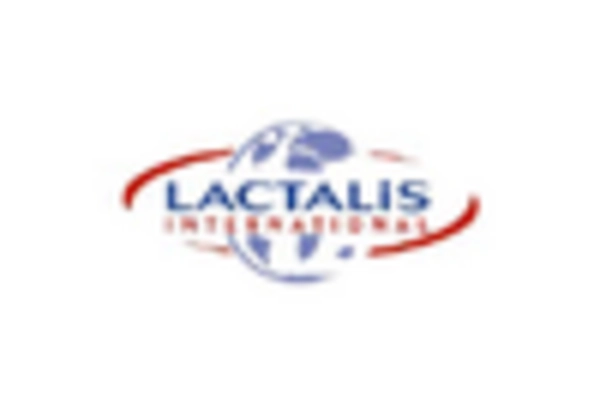Increasing Health Consciousness
The Whey Permeate Market is experiencing a notable surge in demand driven by increasing health consciousness among consumers. As individuals become more aware of the nutritional benefits associated with protein intake, the appeal of whey permeate as a cost-effective source of protein is amplified. This trend is particularly evident in the food and beverage sector, where manufacturers are incorporating whey permeate into various products to enhance their nutritional profiles. According to recent data, the protein supplement market is projected to grow significantly, which bodes well for the whey permeate segment. The shift towards healthier eating habits is likely to sustain this momentum, positioning whey permeate as a preferred ingredient in health-oriented formulations.
Rising Demand for Functional Foods
The Whey Permeate Market is benefiting from the rising demand for functional foods, which are designed to provide health benefits beyond basic nutrition. Consumers are increasingly seeking products that support their health and wellness goals, and whey permeate fits this criterion due to its high protein content and functional properties. The incorporation of whey permeate into functional food products, such as protein bars and beverages, is becoming more prevalent. Market data suggests that the functional food sector is on an upward trend, with a growing consumer base willing to invest in health-enhancing products. This trend is likely to create new opportunities for whey permeate, positioning it as a key ingredient in the development of innovative functional food offerings.
Growth of the Sports Nutrition Sector
The Whey Permeate Market is experiencing growth fueled by the expansion of the sports nutrition sector. As more individuals engage in fitness and athletic activities, the demand for protein-rich supplements and foods is on the rise. Whey permeate, with its high protein content and functional benefits, is increasingly being incorporated into sports nutrition products. Market analysis indicates that the sports nutrition market is projected to grow significantly, driven by a rising number of health-conscious consumers and athletes seeking effective recovery solutions. This trend presents a substantial opportunity for whey permeate, as it aligns with the needs of consumers looking for convenient and nutritious options to support their active lifestyles.
Expansion of Dairy Processing Facilities
The Whey Permeate Market is poised for growth due to the expansion of dairy processing facilities. As dairy producers seek to optimize their operations, the production of whey permeate has become increasingly viable. Enhanced processing technologies allow for the efficient extraction of whey permeate, which can be utilized in various applications, including animal feed and food products. Recent statistics indicate that the dairy processing sector is expanding, with investments in new facilities and upgrades to existing ones. This expansion not only increases the availability of whey permeate but also enhances its marketability as a sustainable ingredient. The synergy between dairy processing advancements and whey permeate production is likely to bolster the industry's growth trajectory.
Sustainability and Waste Reduction Initiatives
The Whey Permeate Market is increasingly influenced by sustainability and waste reduction initiatives within the food sector. As companies strive to minimize waste and utilize by-products effectively, whey permeate emerges as a valuable resource. The dairy industry generates substantial amounts of whey, and repurposing this by-product into whey permeate not only reduces waste but also adds value to the production process. Recent initiatives aimed at promoting sustainable practices are likely to enhance the attractiveness of whey permeate as an ingredient. This focus on sustainability aligns with consumer preferences for environmentally friendly products, potentially driving demand for whey permeate in various applications, including food and animal nutrition.
